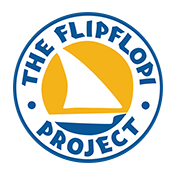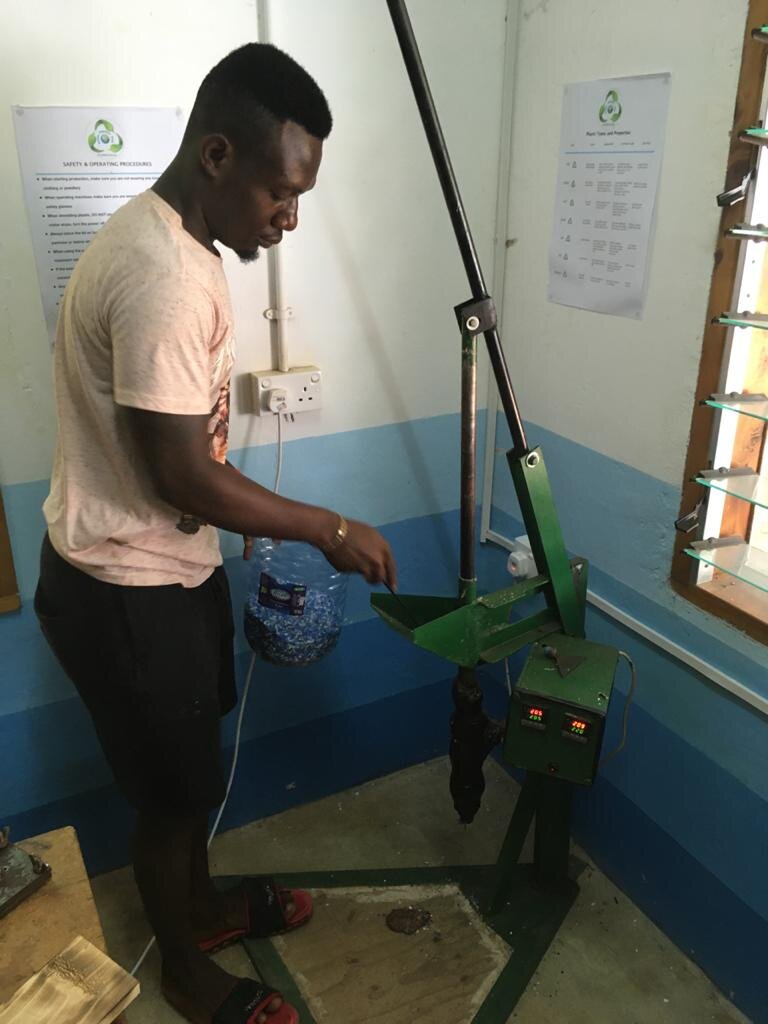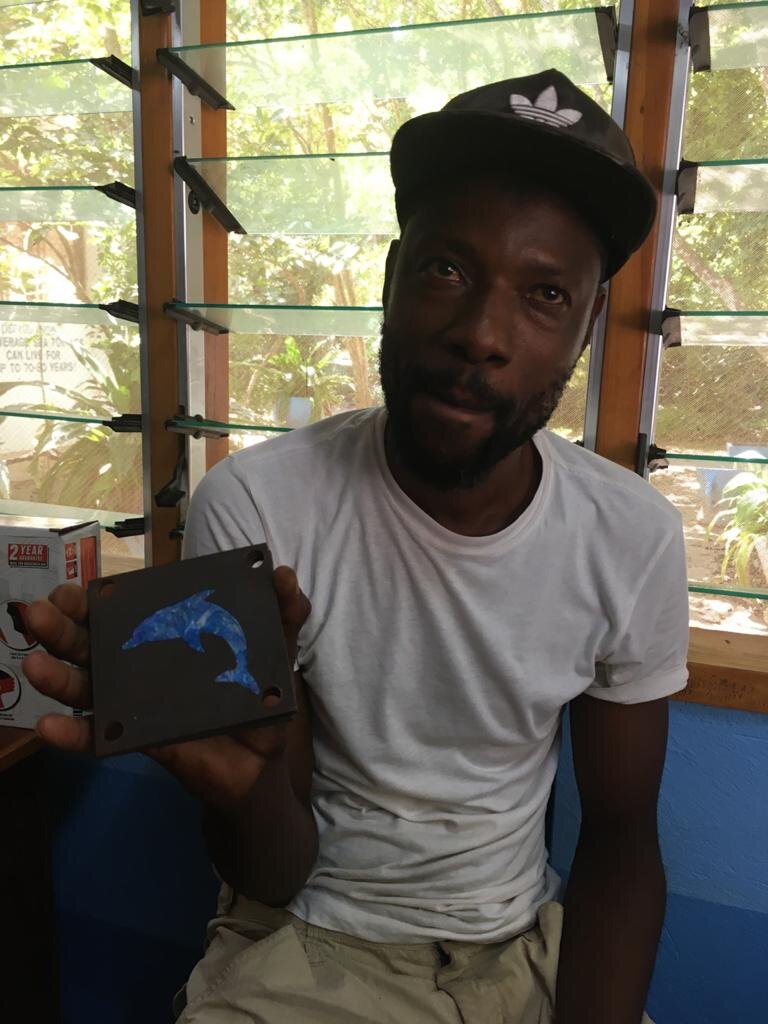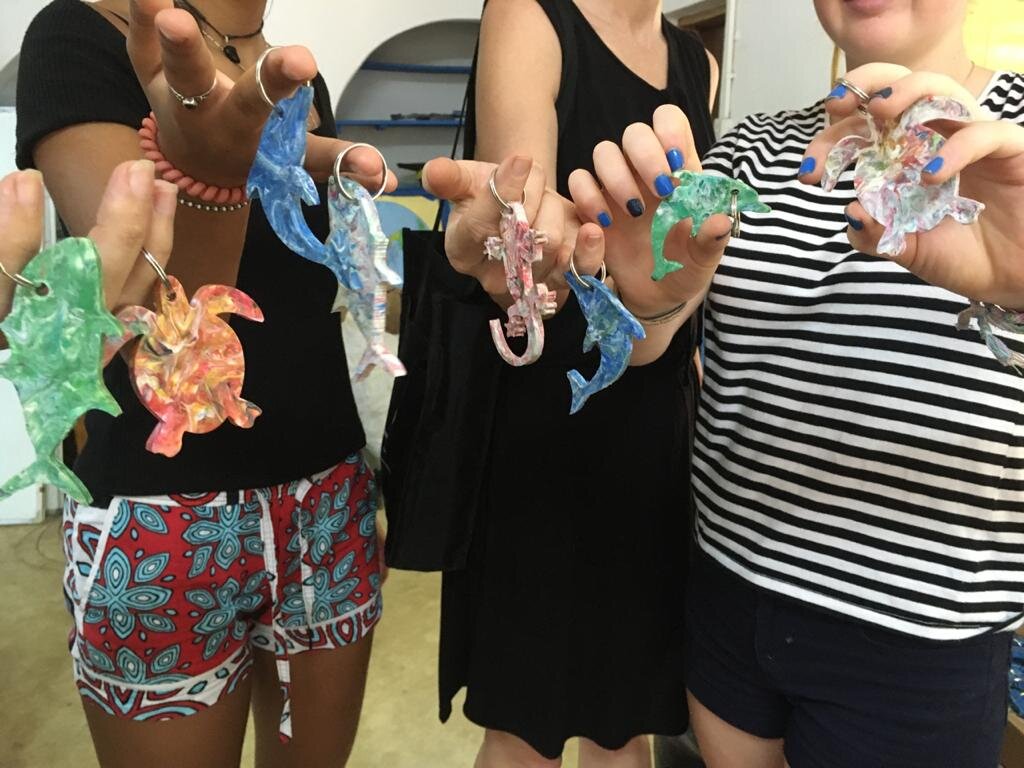Unsung Heroes part 1: Creating a Sustainable Waste Management System in Kenya
Diani - the name evokes thoughts of the palm trees, clear blue waters, and powder white sand that have earned this destination the title of Africa’s best beach 6 years in a row.
Nestled on Kenya’s south coast, Diani - home to the Mijikenda people, has grown rapidly in size over the last few decades, flocked by locals and foreigners alike, attracted by its beauty and looking to capitalise on the tourism boom. Today, over 100,000 people call the Diani/Ukunda urban area home.
However, as the town has grown, the local waste management system has failed to adapt. It is no longer rare to pass by heaps of waste on roads and beaches. According to a 2019 report by the International Coastal Cleanup Kenya, a staggering 22,310kgs of marine litter was collected across the south coast in a one-day exercise.
One group of local residents aims to make a change. Today, we sit down with Susan Scull-Carvalho, the Founder of Kwale Plastics Plus Collectors (Flipflopi’s partner project on the south coast of Kenya), to find out more about what they do, why they do it, how they’ve been affected by COVID-19, and what the way forward is.
Who is Kwale Plastics Plus Collectors (KPPC)?
We are a social enterprise based in Diani, Kwale County, working with the county government to bring change to how waste is managed and to ultimately set up a sustainable waste management system.
Currently, we have set up 30 waste collection points fitted with segregated branded bins around Diani, where residents can drop their waste (plastic, glass, paper, and metal) which we then collect and further segregate.
Our current team is made up of 6 bin collectors and 6 waste sorters.
What problem(s) are you trying to solve?
For decades Diani has lacked a strong waste management system - waste was arbitrarily collected and disposed of in ‘illegal dumpsites’ or in a landfill that sits on an aquifer.
Once dumped, some of this waste was burned, releasing toxic fumes, some of it was consumed by animals, and some of it ended up back in the environment, littering this beautiful town and negatively impacting the health of residents.
This motivated us to develop improved waste handling and disposal systems, starting with setting up segregated bins where waste can be safely dropped and consistently collected.
How many people do you serve?
We currently work within a 300km2 pilot area in Diani, stretching from Kongo Mosque beach to Lantana, and up toward the Lunga Lunga Road. We began our work in June 2018 with 14 collection points and today we have 30. Most of our bins are located along Diani beach road, as they need to be reachable by truck.
How does the waste collection work?
Residents of the area segregate their waste from their homes and then bring this to the bins. Some residents also pay informal waste collectors a small fee to pick up their trash and bring it to our bins.
Once a week, we collect waste from the 30 collection points, change out the bags, and transport the waste to our 3 acre depot in Muhaka - the land was actually donated by the Flipflopi team! This is where we handle and sort the waste.
Waste is sorted by the type of plastic, type of metal, and the colour of the glass.
What do you do with the waste collected?
We are currently stockpiling the waste we have collected as there is no recycling facility in the area. Once we have a sufficient volume of metal, we will sell this in bulk to a ready buyer.
Additionally, we have reused some of the glass to build walls and are looking to take this a step further by making crushed glass a component in construction as a substitute for sand.
We also want to shred and extrude plastic into various value-added products, which can be sold. Less desirable/contaminated plastics can also be shredded and used in road construction.
As for the paper, we want to shred it, pulp it, and mix it with a natural fiber to create eco briquettes which are a better alternative to charcoal.
What do you need to achieve these goals?
We need to operate at a high enough volume for recycling efforts to make sense. Supply of waste materials needs to be stable, and for that to happen, we need to perfect the waste collection system.
In addition, we need to have the necessary manpower and recycling equipment and we need electricity connected at the depot to power the equipment.
How do you engage the community in waste management?
In 2019 we led awareness and education initiatives to improve how the community was disposing of their waste. We worked with different partners to do this, including environmental groups at the Technical University of Mombasa-Kwale Campus, to conduct educational outreach within communities. We also put together a training of trainers programme, with funding and support from a Swiss group named EKWAL, to ensure the outreach is sustainable, though this is currently on hold because of COVID.
Additionally, with the county government, we introduced quarterly beach cleanups, stretching from Tiwi to Chale island, and an annual September cleanup to maintain the cleanliness of our ecosystem. We have also been able to raise funds to carry out our work through service agreements with local hotels (who also volunteer their trucks to collect garbage) as well as having our bins sponsored by local businesses and hotels.
As Diani was recently declared a municipality, we are now working with the Board of the Diani Municipality to integrate waste management systems into the town planning, to improve the road infrastructure so that we are able to reach deeper into communities, and to promote the active involvement of community members in waste management through public participation (to identify specific problems and pinpoint ideas and solutions).
We believe that the only way we can promote community ownership and effectiveness of a sustainable town waste management system is to involve the community right from the start.
“I never thought that there would ever be an effective recycling program in Diani, Let alone Kenya. I now am able to take my recycling waste from my home down to the Green Station close to Lantana and dump it properly. Our home has become cleaner, much cleaner. When I interact with the KPPC staff, they are always very helpful and let me know what they are not able to take in their bins. Very nice to have this in Diani.” Lantana Community
“We use the Bins a lot when we have plastic bottles, but we see the community uses it more than us. A lot of plastic comes from around here because of the shops which are located here. The school teaches us about why plastic is bad for the environment and we are happy that we are being taught this because it is important for our future. We want to see the ocean healthy when we are older. We now bring plastic from home and put it in these bins.” Word of Life Students
What impact have you witnessed?
We are glad to see greatly improved waste disposal behaviour across Diani and an increase in the segregation of waste.
In 2019, we collected 47,000 kgs of waste, which would otherwise have been littered or ended up in the landfill. More specifically, we were able to collect 24,000+ kgs of glass, 13,000 kgs of paper, 8,000+ kgs of plastic, and 1,000+ kgs of metal.
How has Flipflopi contributed to your work?
Flipflopi has been a partner right from the beginning, in fact, the land where our depot is based was a contribution from them. Flipflopi are also business advisors and support us with our communication outreach, and recently, they donated funds towards paying the salaries of our team during this difficult time.
In 2019, Flipflopi helped KPPC set up a recycling demonstration station at the Nomad Marine Education Centre, with equipment and technical support from Plastiki Rafiki. This station hosts local school children twice a week and teaches them about proper waste disposal and reducing, reusing and recycling waste. They are shown how we make recycled plastic key chains, which we sell to support our work.
Additionally, during the historic Flipflopi Lamu to Zanzibar expedition in 2019, KPPC played an active role in organising events, beach cleanups and exhibits to create community awareness.
How has COVID-19 impacted your work?
Our community relies heavily on tourism for income, and this has been devastated by this pandemic - many people have lost their jobs.
As Kwale Plastics, we are striving to maintain the consistency of our work, but with the restrictions on how many people can ride together in vehicles, we have had to limit the number of garbage collectors, slowing down our speed of garbage collection.
Additionally, many hotels are using this down period to conduct maintenance of equipment, meaning that the trucks we were using to collect garbage are out of commission - we now have to hire these trucks, which increases our expenses.
Some of our programmes which involved group interactions are now on hold. However, now more than ever, we need to maintain a healthy environment! That’s why we are working out logistics for a scheme that continues to clean the environment, maintains social distancing rules and creates temporary work for the people of Diani - stay tuned for updates on this!
What are your goals for the future?
Firstly, we are looking at doubling our pilot area in cooperation with the new Diani Municipality, allowing us to serve a larger number of people.
We are also looking to establish a recycling centre in Diani, allowing us to recycle the waste we collect, and creating a stream of income that can sustain our operations.
Lastly, we are looking to develop a 5 - 10 year sustainable waste management system for Diani, through engagement with the Diani Municipality.
Sadly, we don’t have any towns or cities in Kenya with a sustainable ‘closed loop’ waste management system that we can learn from. We are hoping Diani can be that town, and be held up as a best practice example that other Kenyan and East African cities can learn from.












